We, The Why Democracy? crew, made a little trip this weekend and visited Kommetjie, a small beach town. Our landlord Chris has a house in there and let us have a weekend close the beach. Here is our story ...
Friday
So we called a short Friday, after having a decent lunch from the New Yorker Deli at Greenpoint. We got lots of delicious Bagels and ate them at the terrace of the Why Democracy? House sitting in the sun, enjoying our meal while people from the Steps office visited us with the latest news.
In the evening Salla arrived and since she was ok with going out we decided to attend the birthday party of a friend. We tried to get a Rikki cab and it felt like a millennium later we found the party. The driver was not comfortable relying on our knowledge of the place and he drove us in the wrong direction.
We got to the party over four hours after it started and everybody had a really good time, which was well earned after a long week of hard work. On the way back to the house, (with the same driver) the discussion about western or European people’s way of partying came up. How we sometimes seem to do it not in such a good way and that perhaps there is a lack of appreciating the moment. Is really appreciating the moment a cultural thing?
After coming home from Mikes overwhelming 'appreciating the moment' party we went straight into our beds.
Saturday
It took us a little longer to get organized and even though we planned to leave at noon it was 2 pm when we managed to pack ourselves, a dog, our luggage and food in two cars. Yudhvir took us to a bunch of beautiful places and Irini was brave enough to follow him in the hired car and driving on the left side of the street.
It is all about the setting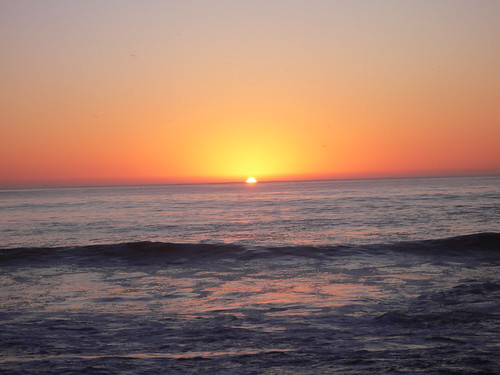 We arrived in Kommetjie at 4 pm and after buying some missing items in a local store we went to the beach, watched the cheesy sunset and discussed serious art issues, e.g. why is there so little support in terms of funding and other resources for African art like documentaries, movies and contemporary literature? We were talking about Joseph Conrad's novel "Hart of Darkness". It is beautifully written but in terms of providing insight into a culture or a land it doesn’t give a proper picture of how things are.
We arrived in Kommetjie at 4 pm and after buying some missing items in a local store we went to the beach, watched the cheesy sunset and discussed serious art issues, e.g. why is there so little support in terms of funding and other resources for African art like documentaries, movies and contemporary literature? We were talking about Joseph Conrad's novel "Hart of Darkness". It is beautifully written but in terms of providing insight into a culture or a land it doesn’t give a proper picture of how things are.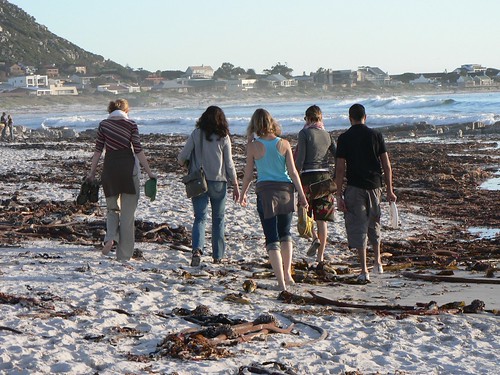 We eventually discussed the different meanings of this kind of literature. How it depends on how you read the novel and in which setting. Reading it as a novel in a relatively analytical and academic setting would deconstruct or at least reveal the motifs, symbols, themes, stereotypes and the European perspective from which the book is written. Reading it as a kind of travel log one can end up with a feeling of knowing this country by reproducing given stereotypes from a European perspective. We basically ended up with the 'when there is a market and a paying audience, then there is the demand for African/Asian ... art solution. The generation of well-educated Africans who can afford a broader awareness of those complexities are hopefully able to create a consumer pressure that hopefully re-directs art production or funding.
We eventually discussed the different meanings of this kind of literature. How it depends on how you read the novel and in which setting. Reading it as a novel in a relatively analytical and academic setting would deconstruct or at least reveal the motifs, symbols, themes, stereotypes and the European perspective from which the book is written. Reading it as a kind of travel log one can end up with a feeling of knowing this country by reproducing given stereotypes from a European perspective. We basically ended up with the 'when there is a market and a paying audience, then there is the demand for African/Asian ... art solution. The generation of well-educated Africans who can afford a broader awareness of those complexities are hopefully able to create a consumer pressure that hopefully re-directs art production or funding.
Human instincts or/and inherited memory After the sundown we got back to the house and the boys made a fantastic veggie-BBQ with sweet potatoes, peppers, zucchinis, garlic bread, tofu sausages and veggie-burger.
After the sundown we got back to the house and the boys made a fantastic veggie-BBQ with sweet potatoes, peppers, zucchinis, garlic bread, tofu sausages and veggie-burger.
It was so cosy around the fire that we had another discussion about inherited memory, which basically stated that being around a fire (the grill) seems to be such a vital human thing to do… We were situated around the BBQ, talking, gaining warmth from the fire and a pleasant anticipation of a delicious meal. Six people with different backgrounds discussing a traditional pancake from the societies they come from while waiting for the diner to be served – an experience of the more fundamental aspects of the human condition at a beach house in Kommetjie – that is what the Democracy House is about. :)
After having dinner we really tried to be cool, staying awake for another hour, but we ended up going to bed at 11 pm and feeling weird about ourselves: Bright, young, hard working, committed people who have a weekend off go to bed early because there is not enough energy to play Trivial Pursuit or go out.
Sunday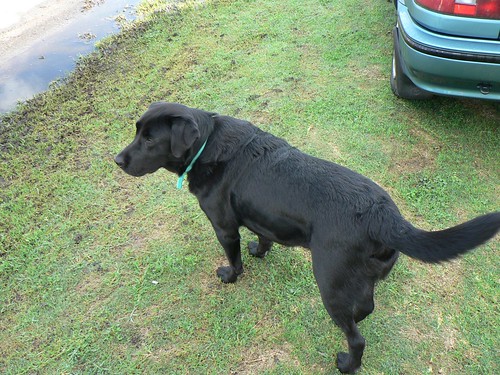 The Sunday started pretty decent: I was awoken by Congo who wanted to jump into my sleeping bag. As soon as the others woke up we went for a walk down the beach and back, which was a not only mind blowing but refreshing experience. Congo had so much fun at the beach that one felt special to accompany him at that very moment, seeing him so happy and delighted by the joys of nature.
The Sunday started pretty decent: I was awoken by Congo who wanted to jump into my sleeping bag. As soon as the others woke up we went for a walk down the beach and back, which was a not only mind blowing but refreshing experience. Congo had so much fun at the beach that one felt special to accompany him at that very moment, seeing him so happy and delighted by the joys of nature.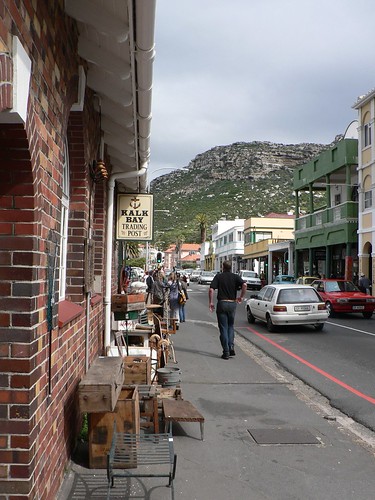 We got back to the house, packed our stuff, cleaned up a little and left at noon in search of a restaurant that provided both a decent meal and the possibility to bring a dog. In Kalk Bay, a touristy little city, a notable number of galleries, craft & art shops as well as antiques and bookstores waited to be seen. We also found a pretty cheesy but very special Cuban restaurant, called Cape to Cuba, were we had our lunch, while discussing mainstream and well-funded (documentary) film production and experimental and not so well funded movie projects. We continued with a discussion about weather health care should be free for everybody or not. We also talked about what kind of governmental restrictions/protection are/is effective in order to provide a sustainable amount of feeling secure by not taking motivation and initiative from people and by that hindering them to develop and create innovation.
We got back to the house, packed our stuff, cleaned up a little and left at noon in search of a restaurant that provided both a decent meal and the possibility to bring a dog. In Kalk Bay, a touristy little city, a notable number of galleries, craft & art shops as well as antiques and bookstores waited to be seen. We also found a pretty cheesy but very special Cuban restaurant, called Cape to Cuba, were we had our lunch, while discussing mainstream and well-funded (documentary) film production and experimental and not so well funded movie projects. We continued with a discussion about weather health care should be free for everybody or not. We also talked about what kind of governmental restrictions/protection are/is effective in order to provide a sustainable amount of feeling secure by not taking motivation and initiative from people and by that hindering them to develop and create innovation.
What kind of society do we want?
Charlotte thinks that people work better when there is the chance of failing, but they should not be able to fail once and therefore ruin their lives completely. I personally agree with that, recognizing at the same time that it is very difficult to set up a limit for those things. What is really necessary, what are – apart from basic needs – minimal cultural conditions for a human being to develop and evolve according to her own qualities? How can we measure, estimate or assess the basic needs of a society? How much equality can and should a democratic government guarantee its citizens?
These limits and restrictions are often perceived as arbitrary - is it good to have them anyway? Is an insufficient social security system better than no one? How many built-in flaws are acceptable? And last but not least, a question, that kind of refers to Yukta's post about modern democracies: isn't it biased when a system guarantees rights for a special group of people - mainly their population in terms of nationality or citizenship – and at the same time undermines other peoples rights by hindering them to exercise these rights or by not respecting other nation's rights in the global context? Is this a kind of accepted exclusion and does this add aspects to the concept of democracy that should be addressed in a critical manner? Is the concept of citizenship and attached access to guaranteed rights a sustainable one for the 21st century?
Join the debate ...
/Amy
Tuesday, August 21, 2007
Amy's account of the weekend
Posted by Why Democracy House at 6:09 PM
Subscribe to:
Post Comments (Atom)
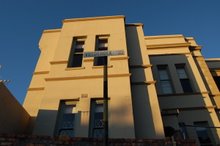

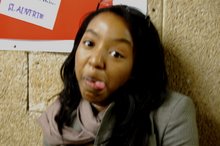
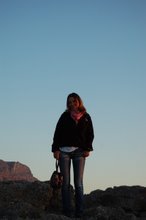




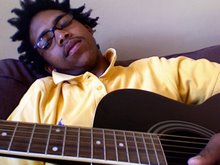
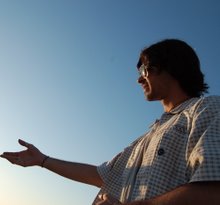




0 comments:
Post a Comment